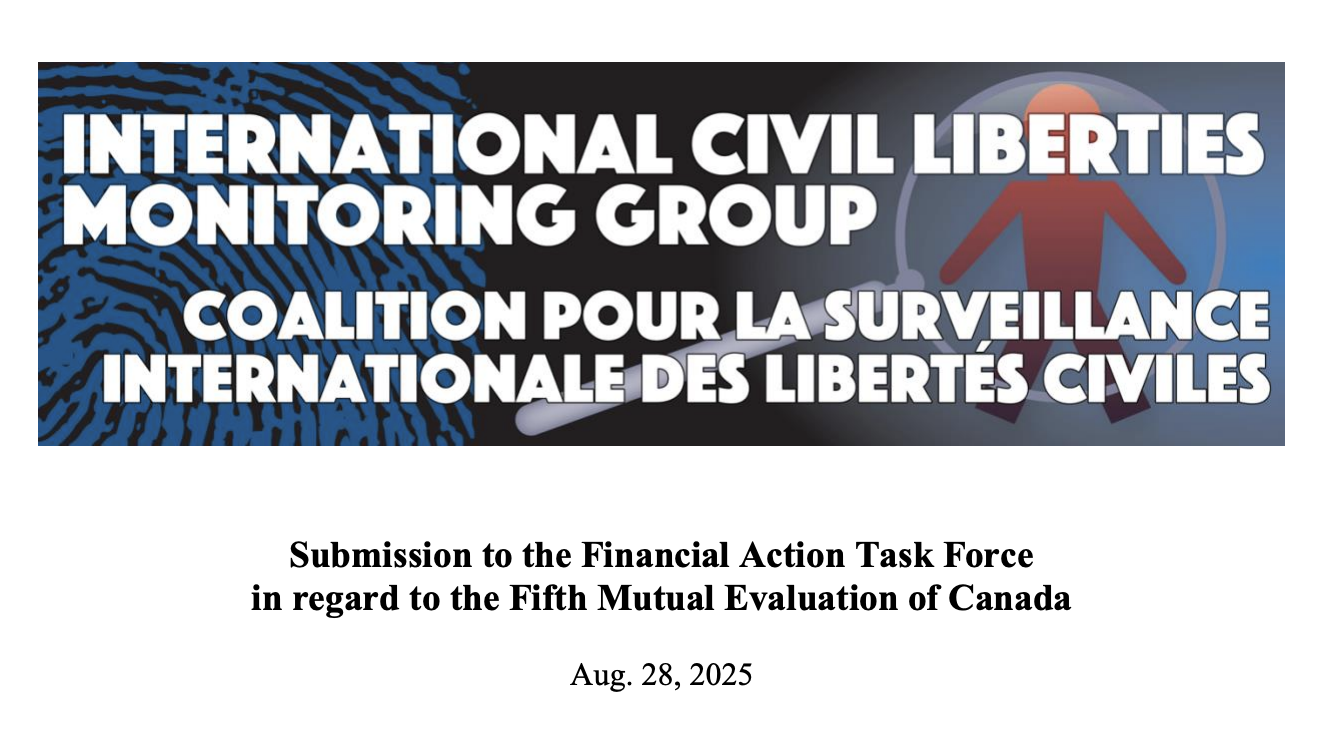
Four and a half months into this new government, we are worried.
Although Prime Minister Mark Carney ran an “elbows up” campaign, promising to protect Canadians from US President Trump’s threats of annexation and tariffs, he is instead sacrificing our privacy rights, as well as throwing migrants and refugees under the bus, to appease Trump’s false border concerns. This is especially true with his government’s proposed Bill C-2, the “Strong Borders” Act.
To ensure this new government protects our rights, we need your help!
Please click the button below to support our work. Thank you!
Bill C-2, the rights-violating “Strong Borders” Act, is back in Parliament this week.
This legislation is anti-privacy, anti-migrant and anti-refugee and will make us all less safe by:
- Arbitrarily limiting the ability of individuals to claim asylum in Canada, in violation of international human rights law.
- Allowing police and intelligence agencies warrantless access to our personal information, in violation of privacy rights.
- Granting the government the power to issue secret orders to internet service providers to modify their systems to facilitate surveillance and possibly undermine encryption, placing our data at risk.
- Allowing for the mass cancellation or suspension of the processing of immigration documents (ex: visas and permanent residency cards) for entire groups of people, including individuals from certain countries.
- Allowing Canada Post to open and search our letter mail.
- And much more.
It can’t be allowed to pass!
Help us build the resistance!
Already, we’re working hard alongside hundreds of partner organizations and thousands of Canadians, to stop this dangerous, cruel and unnecessary legislation:
- We reacted quickly after the bill was tabled and our concerns were covered by many media outlets, journalists, and mentioned in the House by several MPs.
- We analyzed the bill thoroughly and created an action calling for C-2 to be withdrawn. Thousands of letters were sent to MPs and the government.
- We co-initiated a letter against the bill signed by 176 organizations, and joined with others in a press conference to announce, “Over 300 Organizations Unite to Demand Complete Withdrawal of Bill C-2“
- We co-organized and hosted a webinar against Bill C-2 featuring privacy and migrant rights experts that was viewed by hundreds.
But much more needs to be done:
- We are meeting with MPs across the political spectrum to tell them about the problems with this bill and why it must be withdrawn.
- We are working on a brief and a presentation for the Parliamentary study of the bill.
- We continue to help organize the Stop C-2 network to exchange information and strategize to stop the dangerous bill.
MANY more experts, media commentators, organizations, people across Canada and MPs have opposed the bill since it was first introduced.
But Prime Minister Carney seems determined to have it adopted despite the MASSIVE opposition to the bill.
We will need all the help we can get to protect our rights and stop Bill C-2!
What else is coming up in Fall 2025?
While we will continue the fight against C-2 throughout the fall we are also expecting to see other national security bills or policies that will threaten our rights and freedoms, on top of our ongoing work on existing files. These include continuing to:
- Oppose Canada’s complicity in the genocide enacted on Palestinians by Israel in the name of “fighting terrorism” and defend our freedoms of expression, association and assembly on this issue and others.
- Push for ending the use of political, rights-violating and secretive watch lists, including the Terrorist Entities List, and the Canadian and the US No Fly Lists.
- Call for an end to Canada’s complicity in indefinite detention, unfair extradition and torture, including resolving the cases of Abousfian Abdelrazik, Mohamed Harkat and Hassan Diab, and repatriating all Canadians and family members detained in camps and prisons in Northeast Syria.
- Oppose the impacts of counter-terrorist financing laws on humanitarian organizations and Muslim-led charities in Canada.
- Work to reinforce accountability, transparency and due process, including ensuring that any national security review fully involves civil society and impacted communities, increasing funding for review bodies, and reducing restrictions on the defence accessing evidence and other information in terrorism cases.
- Publish our bimonthly News Digest, featuring all news related to the negative impact of anti-terrorism and national security on rights and liberties in Canada and abroad.
- Monitor any upcoming artificial intelligence regulation to ensure there are no exemptions for national security agencies or activities, as was the case with the previous government’s Bill C-27.
Prime Minister Carney has described his party as “the party of the Charter,” and committed in Spring 2025, including in conversation with the UN Secretary-General, to protecting human rights.
So far, that is not what he is doing; quite the opposite.
Will you support our work of protecting our rights and freedoms from the negative impact of Canada’s national security apparatus?
Please share widely and invite your networks to help us protect our rights via email and on Facebook + Bluesky + Instagram + Twitter
Thank you!
Xan & Tim
The ICLMG is a national coalition of Canadian civil society organizations that was established in the aftermath of the rushed adoption of the Anti-terrorist Act of 2001. The coalition brings together 45 NGOs, unions, professional associations, faith groups, environmental organizations, human rights and civil liberties advocates, as well as groups representing immigrant and refugee communities in Canada. Our mandate is to defend civil liberties and human rights in the context of the so-called ‘War on Terror’.






